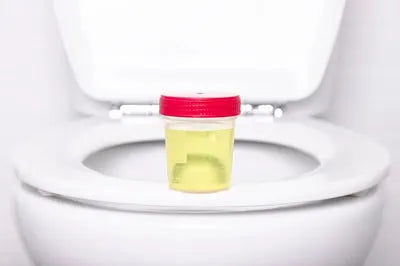Have you ever felt that frustrating trickle of urine when you least expected it, leaving you feeling embarrassed and out of control? If you’re dealing with overflow incontinence, you’re not alone. A lot of people out there are left wondering why their bladder just wouldn’t cooperate, and feeling overwhelmed by the constant worry of an unexpected leak.
But understanding what’s happening in your body—and knowing that there are solutions—can make all the difference.
Overflow Urinary Incontinence Causes
Overflow urinary incontinence can be frustrating and confusing. However, understanding the causes can really help you take the next steps toward managing it.
Common overflow urinary incontinence causes:
-
Bladder Muscle Weakness:
When your bladder muscles are weak, they might struggle to contract properly, making it hard to empty your bladder completely. This can lead to that constant feeling of fullness and those unexpected leaks.
-
Nerve Damage:
Sometimes, nerve damage can interfere with the signals between your brain and bladder. Conditions like diabetes, multiple sclerosis, or spinal cord injuries can cause this disconnect, making it difficult for you to know when your bladder is full.
-
Blockages or Obstructions:
An enlarged prostate in men or a narrowed urethra can physically block the flow of urine. This causes your bladder to overfill, leading to those uncomfortable leaks that seem to happen out of nowhere.
-
Medications:
Certain medications, particularly those that affect nerve signals or muscle contractions, can contribute to overflow incontinence. It’s worth discussing your prescriptions with your doctor if you suspect this might be a factor.
-
Chronic Conditions:
Ongoing health issues like severe constipation can also press on the bladder, preventing it from emptying completely and leading to overflow.
-
Post-Surgery Effects:
If you've had pelvic surgery or radiation treatment, it might have impacted your bladder's ability to function normally, leading to incontinence.
You're facing something that many others have gone through, and with the right care, there are ways to regain control and confidence.
Overflow Urinary Incontinence Treatment
There are effective overflow urinary incontinence treatment options that can help you regain control and improve your quality of life. Here’s a breakdown of the most common approaches:
Bladder Training:
It might sound simple, but gradually increasing the time between bathroom visits can help your bladder adjust. It takes patience, but over time, this can reduce those sudden leaks.
Catheterization:
Using a catheter to empty your bladder completely might feel intimidating at first, but it’s a reliable way to prevent overflows. You can learn to do this yourself at home, and it can make a big difference in your day-to-day life.
Medications:
Your doctor might prescribe medications that help your bladder muscles contract more effectively or reduce prostate size if that’s the issue. These can be a great option if you’re looking for something non-invasive.
Surgical Options:
If other overflow urinary incontinence treatment options aren’t enough, surgery might be recommended. Procedures like removing blockages or repairing your bladder can offer a more permanent solution, giving you back control and peace of mind.
Lifestyle Changes:
Simple adjustments like avoiding bladder irritants (caffeine, alcohol) and staying hydrated (but not overloading) can make a surprising difference. Pelvic floor exercises, like Kegels, can also strengthen the muscles that support your bladder.
Support and Guidance:
Don’t hesitate to reach out for support, whether from a healthcare provider or a support group. Talking to others who understand can be incredibly reassuring. You can also use Friends Adult Diaper pants to stay comfortable. They provide protection and peace of mind, so you can focus on your tasks without interruptions.
You deserve to feel comfortable and in control, and with the right treatment, you can get there.
Conclusion
Are you feeling a bit more hopeful about managing your overflow urinary incontinence? It sure can be overwhelming, but remember, you’re not alone in this journey. There are effective treatments and small changes you can make that truly have a big impact. It’s all about finding what works best for you and taking it one step at a time. Don’t be afraid to seek help or talk to a healthcare professional—taking control of your bladder health is a brave and empowering step. You deserve to live comfortably and confidently, and with the right approach, you can get there.
FAQs
What are the causes of overflow incontinence?
Overflow incontinence often occurs when your bladder doesn't empty fully, leading to leaks. Common overflow urinary incontinence causes include weakened bladder muscles, nerve damage, or blockages, like an enlarged prostate.
Which treatment is often used for overflow incontinence?
A common treatment involves catheterization, which helps empty your bladder fully. Medications or surgery may also be recommended to address the underlying overflow urinary incontinence cause and restore your control.
How can I permanently fix incontinence?
Permanent solutions can include pelvic floor exercises, bladder retraining, or surgical interventions. The best approach depends on your specific situation, so consulting a specialist is essential.
What foods stop urination?
Foods rich in magnesium, like bananas and leafy greens, can help reduce bladder irritability. Avoiding caffeine, spicy foods, and acidic fruits can also minimise frequent urination.
What can I drink to stop urine leakage?
Herbal teas, like chamomile, can soothe the bladder. Water is essential, but limiting evening intake can reduce nighttime leaks. Stay hydrated, but monitor what and when you drink.
















